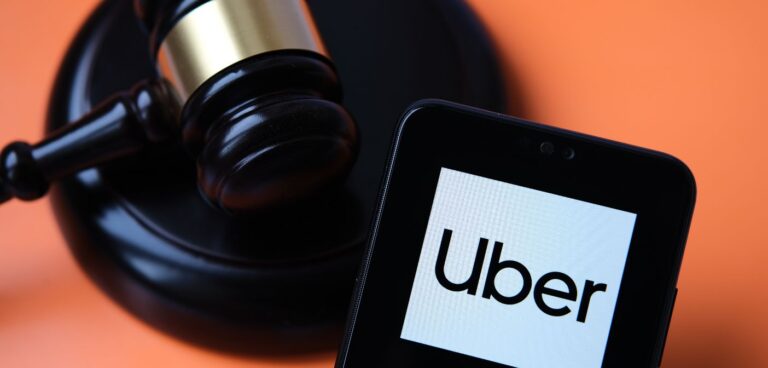Uber has confirmed that all 70,000 of its UK drivers will be granted minimum wage, holiday pay and pensions, but said customer fares will not rise.
The ride-hailing app said drivers would earn at least the national living wage, or £8.72 per hour, in a move that could shake up the wider gig economy.
The announcement comes a month after Uber lost a five-year legal battle in the UK over whether the drivers should be classed as workers or self-employed.
It argued it was a third-party booking agent, and its drivers were self-employed.
Dara Khosrowshahi, Uber’s chief executive, said: “This is a significant improvement in the standard of work for UK drivers.
“But I know many observers won’t pat us on the back for taking this step, which comes after a five-year legal battle.”
He wrote in the Evening Standard: “They have a point, though I hope the path that we chose shows our willingness to change.”
Uber drivers in the UK will now get at least the legal minimum wage, after expenses and holiday time at 12.07% of earnings, paid out on a fortnightly basis.
They will also be automatically enrolled in a company pension plan with contributions from Uber alongside their own.
Furthermore, drivers will continue to have access to free insurance in case of sickness or injury as well as parental payments, which have been in place for all drivers since 2018.
Uber drivers will start benefiting from the changes from today while retaining the right to choose when they work.
However, these changes also do not apply to couriers in Uber’s food delivery business, Uber Eats. Their status will remain as self-employed rather than workers.
Unions and drivers welcomed the decision. Mick Rix, national officer of the GMB union, said: “Other gig economy companies should take note – this is the end of the road for bogus self-employment.
“Uber had to be dragged kicking and screaming to do the right thing, but finally they’ve agreed to follow the ruling of the courts and treat their drivers as workers.
“It’s a shame it took GMB winning four court battles to make them see sense, but we got there in the end and ultimately that’s a big win for our members.”
According to Sky News, Uber’s share price fell by just under 1% in after-hours trading in New York, as investors digested the implications of the decision.
Despite this, the company said the recent UK Supreme Court ruling had provided a clearer path forward as to a model that gives drivers the rights of worker status, while continuing to let them work flexibly.
Jamie Heywood, regional general manager for Northern Europe at Uber, said: “Uber is just one part of a larger private-hire industry, so we hope that all other operators will join us in improving the quality of work for these important workers who are an essential part of our everyday lives.
“Drivers have consistently told us that they wanted both the flexibility that we provided but also they wanted the benefits and we’ve been struggling to find a way of bringing those two together in a way that work for us and work for drivers,” he said.





